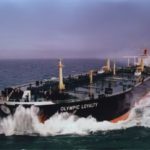“BNP Paribas’ commitment to the blue economy is strong and concrete”

What are the main stakes involved in protecting the ocean?
The ocean is crucial for our planet and provides many services. It provides humans with essential resources in terms of biodiversity: 200 000 species have been identified; doubtlessly, there are many millions in reality. It provides food security and contributes to health and habitats preservation and to coastal protection. As an important source of jobs, the maritime industry is a major pillar of our globalised economies.
Climate-wise, the ocean captures almost 30% of the CO2 emitted by human activities and thus plays a key role in combating climate change.
The ocean is precious, but is under threat. Its condition is deteriorating rapidly under the effects of climate change, CO2 emissions and pressure from both land and sea-based activities, as illustrated by the deterioration of coral reefs, overfishing and land-originated pollution.
What guarantee can a banking group provide for the blue economy? What concrete actions need to be implemented and have already been undertaken? What is the BNP Paribas Group doing for the blue economy?
In the same way that a bank plays an important role in fighting climate change and financing the energy transition, it can finance many activities with a direct link to land and marine biodiversity. In this way, it has an indirect impact.
Given the bank’s commitment to contributing to the achievement of the UN Sustainable Development Goals (SDGs), BNP Paribas committed more specifically a year ago to SDG 14 (Life Below Water), which is the one SDG least supported by companies (only 14% of companies see it as a priority).
The commitment is finance activities with a potential impact on the ocean in the most responsible way possible, notably shipping, fishing, aquaculture and offshore infrastructures. This goes hand in hand with supporting clients in their transition, through both the development of positive impact financing and a EUR 1 billion envelope dedicated to financing shipping’s ecological transition by 2025.
BNP Paribas seeks to support innovation by investing in projects such as sustainable aquaculture and alternatives to plastic packaging from petrochemical sources. It supports start-up acceleration programmes such as “We Are Innovation” in France or the “Sustainable Ocean Alliance”, a non-profit incubator organisation dedicated to ocean protection in the US.
How might the development of the blue economy affect the daily lives of BNP Paribas clients, be they individuals or professionals?
Participating in ocean protection requires a commitment to the ecological transition of all the sectors involved. This transition goes hand in hand with research, innovation and investment.
In shipping, for example, the International Maritime Organization’s target of halving the sector’s carbon emissions by 2050 requires a significant technological breakthrough. The LNG (liquefied natural gas) engines being developed today are heading in the right direction and the industry is currently testing other even more disruptive technologies with lower emissions such as green hydrogen, ammonia, electric batteries and even a return to sailing.
The development of the blue economy affects all economic stakeholders, both start-ups and longer-established companies, that benefit from the ocean. Raising awareness is key to meeting the challenges: Sustainable aquaculture rather than overfishing certain species; protecting and promoting coastal ecosystems for their role in capturing carbon; and enhancing the value of natural assets and tourist attractions.
What are the main BNP Paribas business lines involved in the development of the blue economy? What kinds of initiatives are being undertaken?
BNP Paribas seeks to use all available sources of leverage. Beyond its direct assistance in the sector through banking products and services, BNP Paribas is involved in investment initiatives aimed at promoting good practices. It took part in the work of the “Green Marine Europe” certification programme, an initiative launched in 2020 by the “Surfrider Foundation” providing voluntary environmental certification for the shipping industry.
We closely collaborate with clients, experts from the scientific world and non-governmental organisations (NGOs). We are also working with other financial institutions to establish common reporting frameworks, as illustrated by the Poseidon Principles, which deal with the calculation of CO2 emissions related to shipping financing portfolios.
As part of its Climate and Biodiversity Initiative, the BNP Paribas Foundation supports eight scientific research projects on the protection of ocean and marine biodiversity. Finally, within its own operations, the Group is committed to ending the use of petrochemical plastic and single-use products.
Source: BNP Paribas

 Hellenic Shipping News Worldwide Hellenic Shipping News Worldwide, Online Daily Newspaper on Hellenic and International Shipping
Hellenic Shipping News Worldwide Hellenic Shipping News Worldwide, Online Daily Newspaper on Hellenic and International Shipping






















 PG-Software
PG-Software